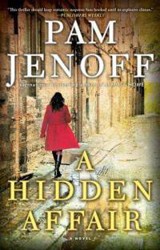Gracefully written, engaging, evocative, vexing at times, Saskia Goldschmidt’s The Hormone Factory begins in the grips of impending clarity of death’s paralysis. It is the story of two Jewish twin brothers, a brilliant Jewish scientist, and the factory girls viewed through the lens of the passionate, often immoral and very human twin, Mordechai (“Motke”) de Paauw.
Based on the true story of the birth and success of the Dutch pharmaceutical company, Organon, Goldschmitdt breathes life into the founders and tells us a compelling and disturbing tale set in the backdrop of Holland during the rise and fall of the Third Reich. In the midst of Hitler’s march across Europe, Goldschmidt plops us directly into the underbelly of capitalism at a time when workers were exploited and empires were built.
Goldschmidt’s picturesque use of language is both eloquent and poignant. More than once her well-crafted sentences and paragraphs were reread for the pure pleasure of the writing. Tightly written, this novel is simultaneously profound and accessible.
Our protagonist’s adult life spans the reign of Nazi Germany. Goldschmidt explores the Jewish post-Holocaust judgment of those who managed to survive — those that fled and those who did what they had to do. It is the story of ambition and avarice that knew no bounds. It is a story of friendship and betrayal. It is the story of power and intimidation.
Beginning with Motke’s end-of-life flashback, replete with pride, humor, greed, sex, horror, regrets, and rationalization, we watch with voyeuristic enthusiasm and disgust the reckoning of his life. Trapped in a hospital bed, attended to by Mitzi, his latest wife — who it seems revels in her dominating presence over this once powerful man who consumed a number of women in his wake — we hear his story.
Motke is the dominant twin. He has prowess, aggression, chutzpa, success, vision, but lacks a moral compass. His brother Aaron is weak, depressed, self-debasing, complacent, and worst of all complicit — he knows, but is unwilling or more likely unable to challenge Motke’s deplorable behavior. Aaron serves as the conscience Motke ignores. Both men are tragic. Motke survives, succeeds, and procreates in a glaring Darwinian way. Aaron does not.
The brothers’ contrast (the proverbial good and evil twin) is unrealistic at times, requiring a suspension of disbelief. Goldschmidt, however, keeps us turning the pages.
These two brothers, Motke and Aaron, inherit a meatpacking company. With the help of Levine, a prescient scientist, Motke transforms the slaughterhouse into the pharmaceutical company Farmicon. The partnership of Levine and Motke mass produce insulin and later testosterone. The dichotomy arises from virtuous outcome, perhaps even accidental outcome of the establishment of Farmicon. The pharmaceuticals improve the lives of the masses and the factory provides jobs and income to the community and refugees from Germany. Yet Motke’s power is absolute and abused. Taking advantage of economic conditions, his position, and his delusions that he is a sought after prize, Motke both experiments on and sexually molests the women working in his factory.
As he looks back, he is haunted by the women he oppressed. In Motke’s words, “Far more often it’s memories of the women that come and disturb my peace of mind — always the women. They were both my greatest joy and my life’s most terrible curse.”
He is tormented by the consequences of his actions toward Rivka (his first wife), Aaron, and, ultimately and most vehemently, the next generation. His business acumen and success is incontrovertible; conversely his interpersonal relationships fail miserably.
In the end, it comes down to Tikkun Olam. Do the medical advances outweigh the wretched treatment of the factory girls, his family, and his friends? Does the outcome tip judgment’s scales? Tikkun Olam. Is the world a better place? Can Motke even make that argument?
The story begins and ends in paralysis of the death rattle. Motke’s urge to right the wrongs or more importantly prevent the next generation from perpetuating his mistakes.
This compelling tale is worth every page.
Related content:
Cathy Sussman’s passion is books. She graduated magna cum laude with a B.A. in English from the College of St. Thomas in St. Paul Minnesota. She lives in Minneapolis with her husband, children, dog and cat. For her day job, she specializes in reinsurance and is a principal at Dubraski & Associates.





